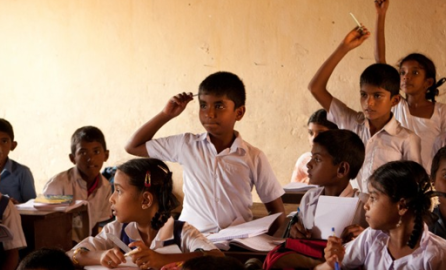
After the Indian government rejected repeated offers of technical cooperation in the form of technical assistance to the country's education sector, the EC delegation in India decided to take a new approach and launched discussions with the government on what support they could provide instead.
As Shanti Jagannathan explains, the government of India felt it did not need the help of international consultants as they believed they had sufficient capacity already. What they lacked, however, were lessons learned from international success stories.
"We asked the question how did they see the [potential] value addition from international cooperation? And we heard that they were interested in having access to international best practices of things that have worked elsewhere in the world. How practitioners have addressed the same set of issues, and found solutions to them," said Jagannathan.

To hear more from Ms Jagannathan, click on the audio icon below.
Shanti Jagannathan, discusses no TC CD in India
After listening to their partner's needs, the EC India delegation revised its education sector support programme, removing the traditional technical assistance element. Instead, the EC provided the bulk of the 3 million Euros needed to make international good practice available in teacher management, school management and leadership and inclusive education.
The EC delegations have issued a "Call for Proposals" from not-for-profit organisations that can collaborate with the government of India to realise this exchange. These organisations will work with the country's existing systems to find additional knowledge and practice from outside India that would benefit the existing national education programme.
The Call for Proposals was launched in 2009 with activities scheduled to being in 2010.


(1)
Log in with your EU Login account to post or comment on the platform.
Its good to listen to the type of assistance the country needs and tailor the 'TA' accordingly.In
the case of developing ' best practices for education in India, I would
like to recommend in addition to the ( call for proposals for exchange
programs with NGO's) to utilise the excellence and the experience of
the several international schools operating in India who follow
international curriculum's as well as international teaching practices.
( Such schools educate the children of many international communities ).This
opportunity will greatly enhance the delivery of experience sharing at
a significant lower cost and greater effectiveness in the program.Such schools would, I am sure be willing to share, best practices ( and within an Indian context ).VK, ( writing from Delhi)